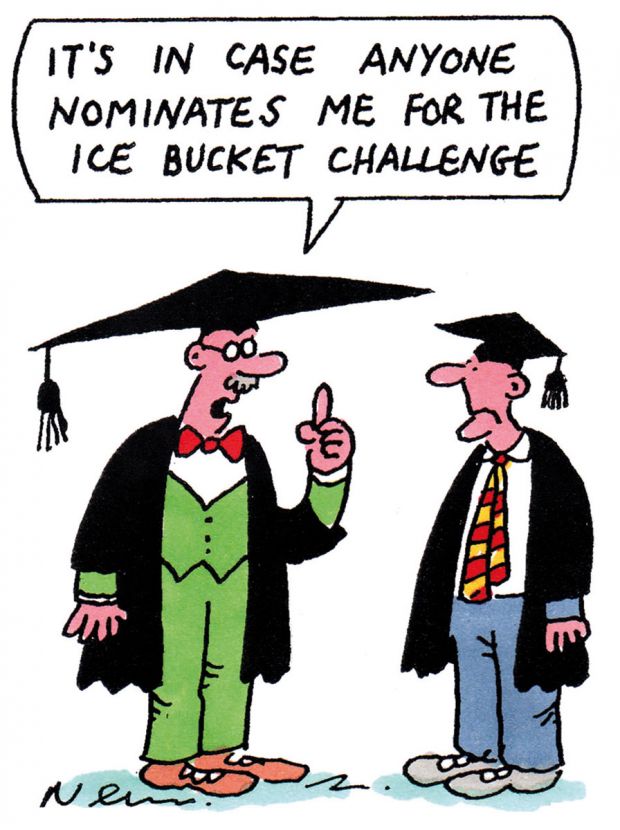
- The University of Brighton has come under fire for funding an academic conference on the My Little Pony toys, The Daily Telegraph reported on 28 August. According to Jonathan Isaby, chief executive of the TaxPayers’ Alliance, the £400 spent by Brighton to organise the day-long event was unlikely to provide “academic value” for students or the British economy, and that “eyebrows will be raised”. The conference, titled My Little Pony: A Transcultural Phenomenon, included talks on how queer theory, modern fandom and the politics of pink had played a role in the toy’s huge popularity over the past 30 years. However, given the billions of dollars of sales generated by the six-inch-tall figurines, maybe £400 is money well spent if it helps someone attending the conference to emulate Hasbro’s extraordinary success in flogging the bizarre plastic toys.
- Dozens of students at the University of Aberdeen are set to share twin hotel rooms because of an accommodation shortage, the Daily Record reported on 28 August. Aberdeen told the Record that it is to book 100 rooms at a hotel on the outskirts of the city for the first two weeks of term while it tries to place freshers in suitable housing. It is also talking to nearby hotels about putting up incoming students, and examining how to create “temporary dorms” on campus, it said. While the room shortage has affected only 280 of Aberdeen’s 4,000 intake, the father of one student destined for a hotel stay was not happy, saying that his daughter had been promised a room in halls. But “they are charging us £100 per week, the same charge as halls, so obviously the university are taking a reasonably large hit”, he added.
- University leaders joined the likes of David Beckham, Benedict Cumberbatch and George W. Bush to take part in the summer’s “ice bucket challenge”. Sir Leszek Borysiewicz, vice-chancellor of the University of Cambridge, took his soaking while dressed in a shirt and tie after he was nominated for the stunt by cosmologist Stephen Hawking. Professor Hawking is possibly the world’s most famous sufferer of motor neurone disease, for which the social media drenching craze has raised tens of millions of pounds worldwide. Other institution heads to take the challenge include the University of Bedfordshire’s Bill Rammell, the University of the West of England’s Steve West and Stirling principal Gerry McCormac.
- Spending £25,000 on a private jet to arrive at university may seem an unlikely priority for most freshers. But a firm is now offering this service for students who are keen to make “a great first impression”, The Guardian reported on 1 September. Run by luggage transporting firm UniBaggage.com, the service also lets people pay £20,000 to arrive by private helicopter or £18,000 to rock up to halls in a McLaren supercar, the paper says. Those wishing to slum it can pay £10,000 to turn up Downton Abbey-style in a horse and carriage. This option “clearly bellows: ‘Greetings, future debtors! I am not like you!’”, which is sure to make a lasting impression, although not necessarily a good one, the paper observes.
- With the Conservative Party under pressure from the UK Independence Party, plans to limit student support payments to European Union students arrived at an optimum time. Under the proposals unveiled by universities minister Greg Clark, EU students would need to live in the UK for five years before they were able to access maintenance loans or grants compared with the three years currently required, according to a consultation paper published by the Department for Business, Innovation and Skills on 1 September. Those from Romania, Hungary and Portugal are likely to be hardest hit by the plans, which aim to cut the £162 million annual bill for supporting EU students. Mr Clark’s plans will save about £14.6 million a year for every 1,000 students who are deterred from enrolling in UK universities, the paper reports. A lot of money, but a sum that will still not scratch the surface of the ballooning overall value of loans and grants, which is set to hit £12.2 billion next year, up from £9.3 billion in 2012-13.
Register to continue
Why register?
- Registration is free and only takes a moment
- Once registered, you can read 3 articles a month
- Sign up for our newsletter
Subscribe
Or subscribe for unlimited access to:
- Unlimited access to news, views, insights & reviews
- Digital editions
- Digital access to THE’s university and college rankings analysis
Already registered or a current subscriber? Login
